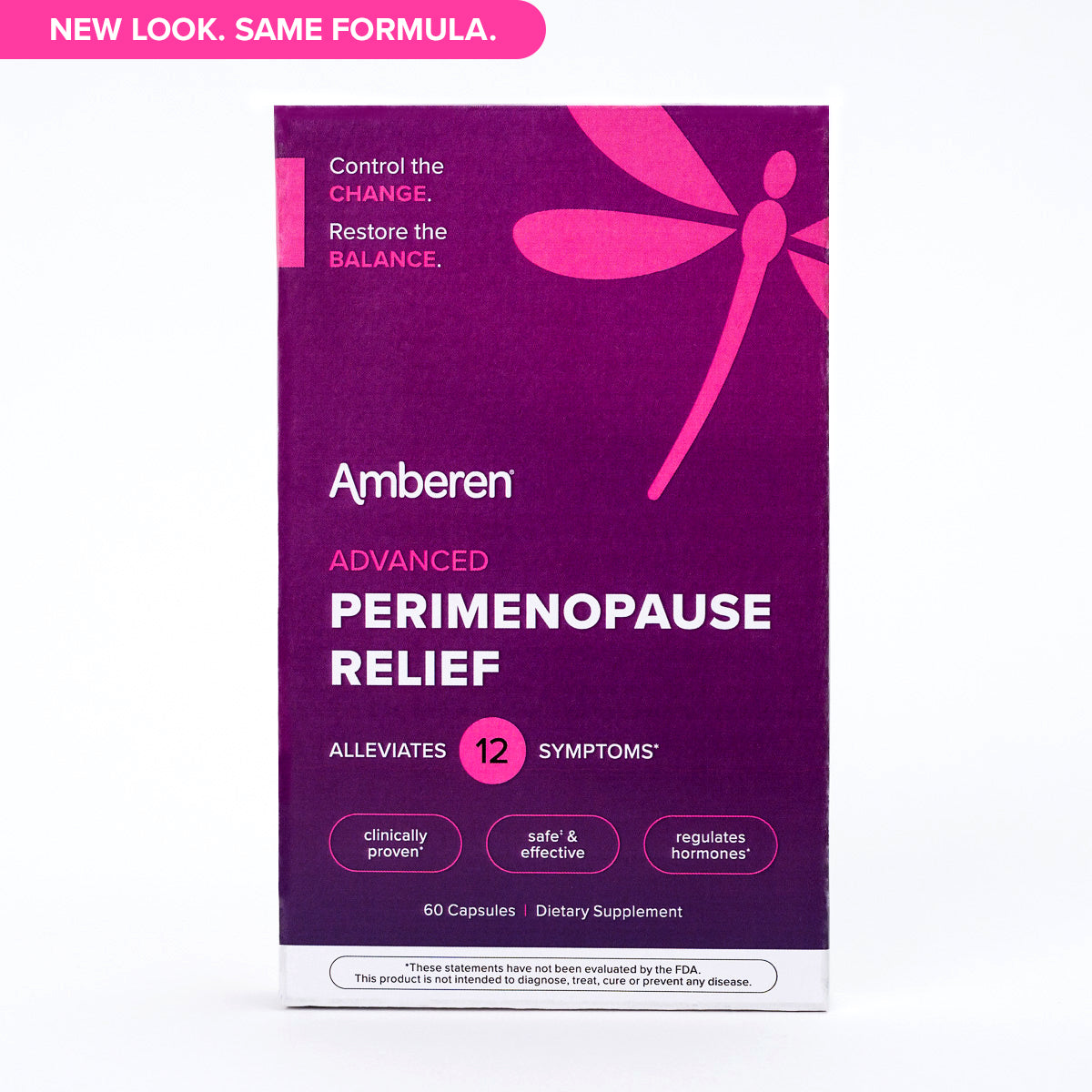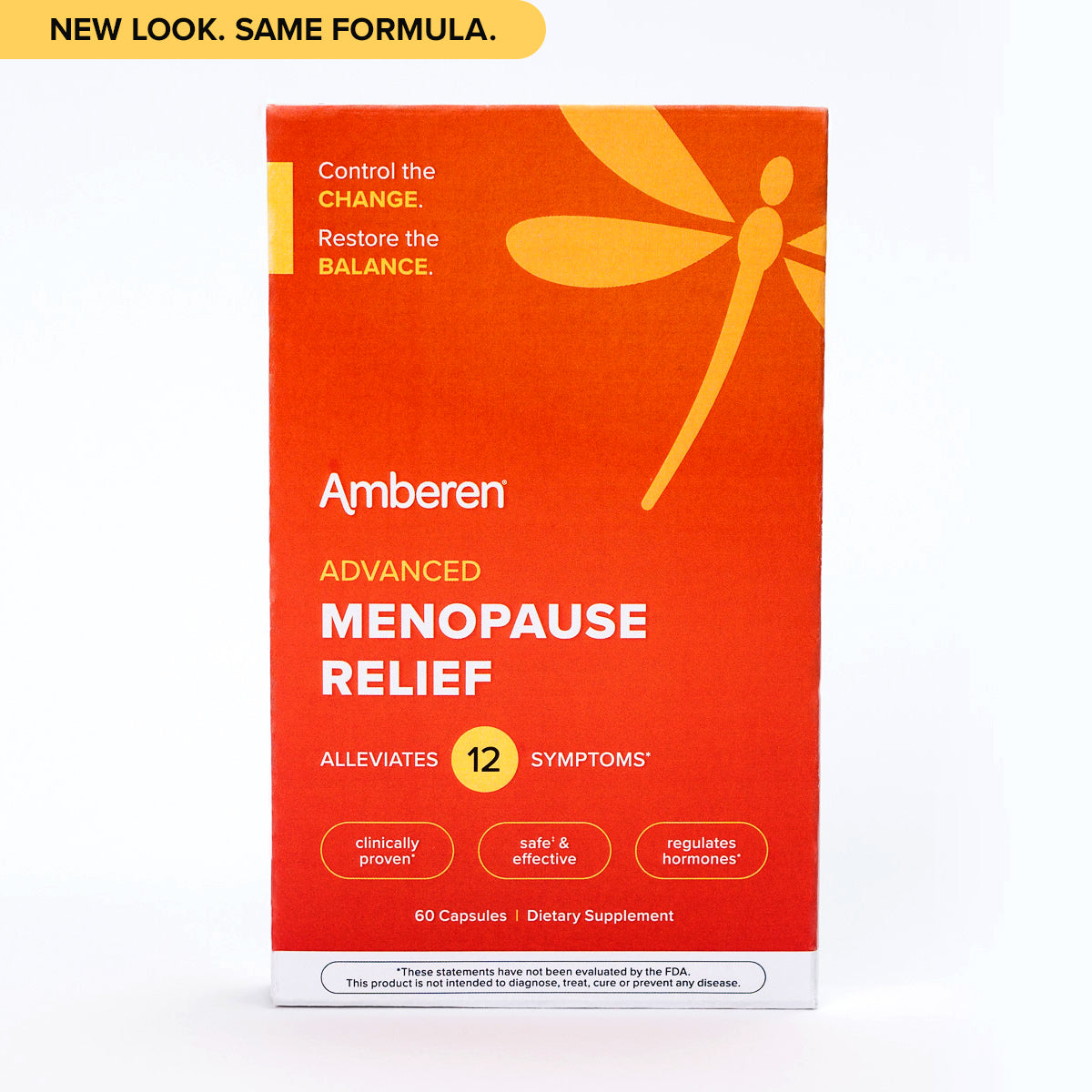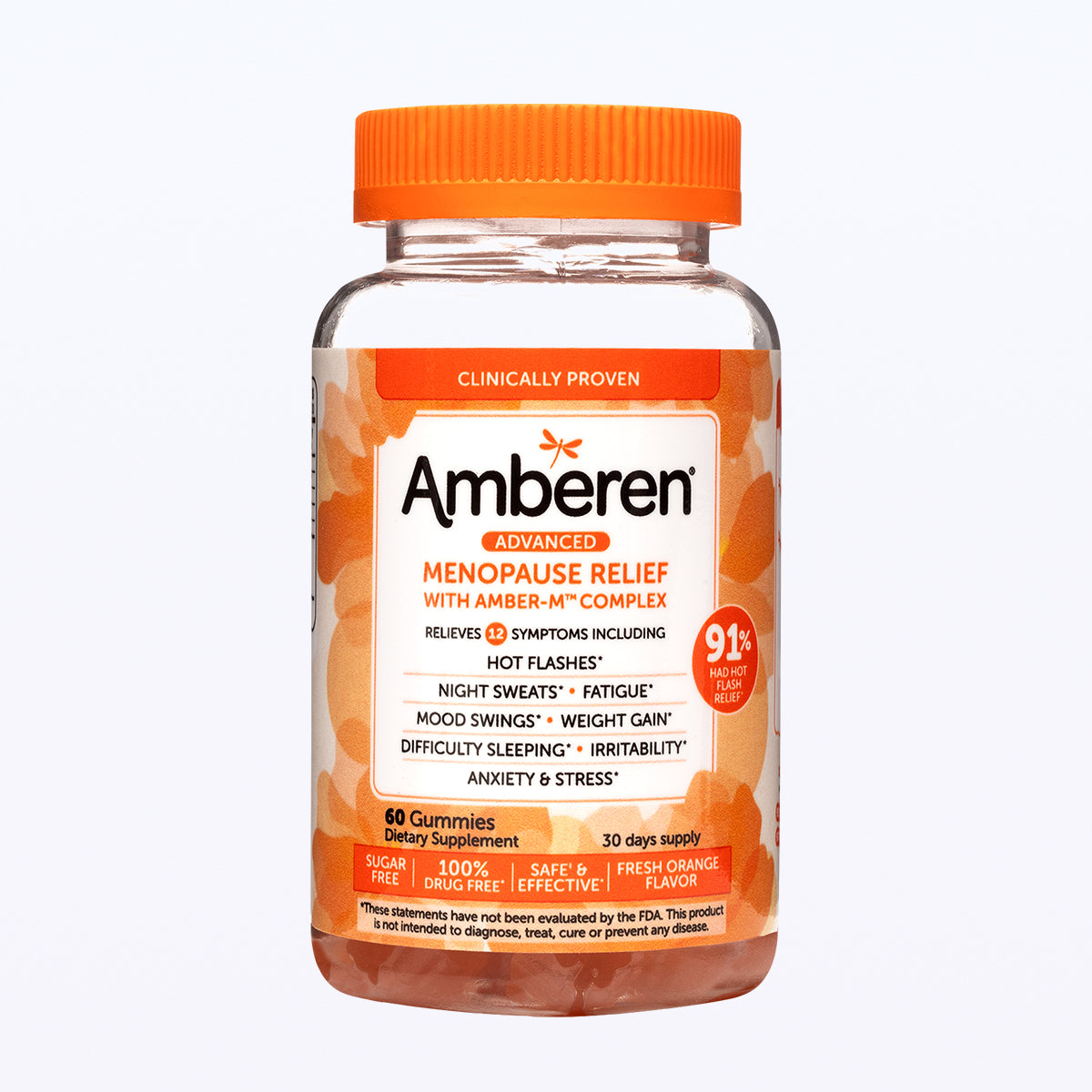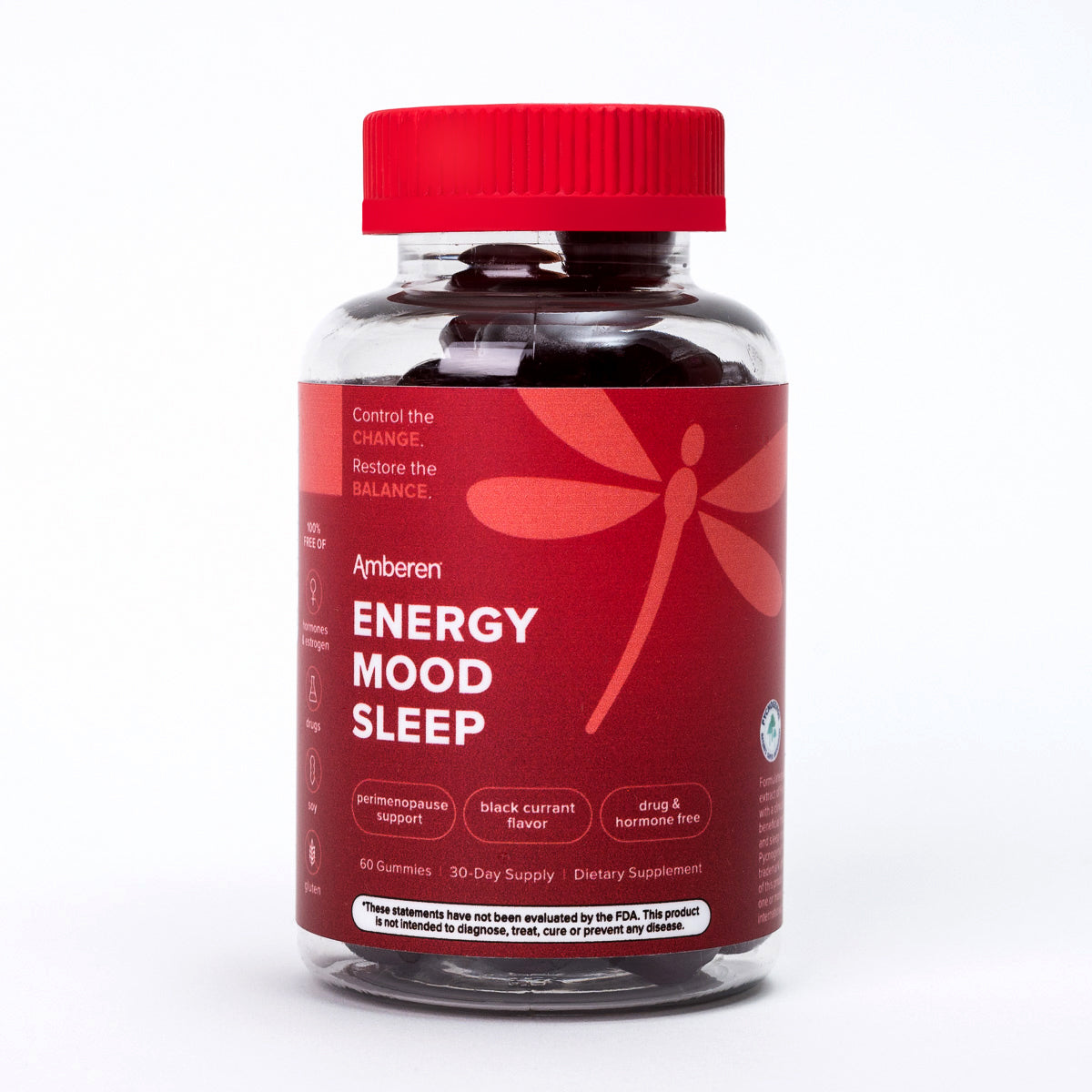
What to eat & what to avoid when going through menopause

Menopause affects every woman differently, including the types of symptoms and how often they occur. When it comes to “the change,” there's very little that's biologically within our control. Menopause is unavoidable. However, you can control what you consume. Feeding your body with the right nutrients is one way to help ease symptoms and maintain overall health through post-menopause.
A woman's nutritional needs change throughout life
What you eat can directly make an impact both internally and externally. Eating well can help manage your overall health. According to WOMEN'S HEALTH, a woman's nutritional needs change at every stage of her life. As we age, the amount of calories we need tends to lower. However, the right amount of nutrients to maintain good health should increase. Especially with the drop in estrogen, menopausal women may need more calcium and vitamin D for bone protection. Vitamin D works hand in hand with calcium, as it aids in calcium absorption.
Health starts on the inside
Proper nutrition affects our vital organs and bones internally, especially with age. Since osteoporosis is a progressive disease, bone mass deteriorates, causing an increased risk of fractures. This is especially true when women reach postmenopausal age.
What to eat & what not to eat
Menopause symptoms can feel like your life has turned upside down. However, eating the right foods can help you remain healthy and continue leading an active life. Before we dive into the types of foods you should eat, let’s check out what you should avoid.
Limit
• Spicy foods: Spicy dishes can exacerbate hot flashes and night sweats. If you’re one that likes it a little hot, consider cutting back to smaller servings or avoiding spicy foods altogether.
• Processed foods and fast foods: These types of foods tend to have lower nutritional value. Processed foods especially can make you feel more bloated because of sodium and sugar additives. Not to mention, they’re processed in trans fats and oils and are stripped of fiber. Fast foods are tempting quick fixes to satiate cravings for french fries and your favorite burger. But, fast foods are unhealthily loaded with carbs and saturated fat, offering very little nutritional value.
• Alcohol: Drinking should be curbed because it can contribute to long-term health problems and aggravate menopause symptoms. According to THE NORTH AMERICAN MENOPAUSE SOCIETY, heavy drinking (2 – 5 drinks per day) increases the risk of cardiovascular disease. Women who are heavy drinkers are also 1.5 times at greater risk of having breast cancer. Even occasional, light drinking can trigger hot flashes for some women, so moderation is key.
Vitamin D & calcium foods
• Fresh vegetables: Women in menopause should consume more fresh vegetables; this should include vegetables that contain calcium. Calcium-rich vegetables include kale, spinach, okra, collards, bok choy, broccoli and white beans. Certain calcium-fortified breakfast foods like orange juice, oatmeal, and breakfast cereal are healthy ways to start the day. If you’re thinking of eating just egg whites for breakfast, egg yolk contains vitamin D, so make your eggs sunny side up!
• Beef liver: Beef liver is rich in vitamin D. But if you’re not a liver fan, try fish! Fish like salmon, tuna, perch, rainbow trout, sardines and mackerel are vitamin D rich. Dairy products like cheese, cottage cheese, yogurt and milk are equally packed with both vitamin D and calcium.
• Nuts: Almonds, peanuts, cashews, and Brazilian nuts are loaded with calcium, which helps maintain bone health.
• Fruits: Apricots, figs, oranges, blackberries and raisins are rich in calcium.
• Vitamins: Supplements are also a great way to make sure you’re getting the amount of daily vitamin intake your body needs to stay healthy. Calcium and vitamin D supplements, in addition to multi-vitamins, can help if you’re lactose intolerant or worried about whether or not you're consuming the proper daily amount. Women 51 years of age and older should consume 1200 mg of calcium daily (this includes calcium-containing foods and supplements).
Likewise, externally, your skin, nails, and hair also change with maturation. According to Menopause Review, a scientific journal, hair loss during menopause has been known to affect some menopausal women. During “the change,” thinning hair or hair loss is caused by hormonal imbalance.
Foods for hair, skin and nails
• Biotin: Foods rich in biotin are great for hair. Biotin, otherwise known as vitamin H or also referred to as vitamin B7, is a part of the vitamin B complex. A deficiency in biotin can cause hair loss, according to research. Some biotin-rich foods have been listed under foods that are rich in vitamin D and calcium like nuts such as almonds, cashews and peanuts. Though, you should also add walnuts and pecans to the mix. Other biotin-rich foods are cauliflower, cheeses, mushrooms, spinach, avocado and sweet potato. Sweet potato is one vegetable that has one of the highest amounts of biotin. It's also rich in beta-carotene, which is good for skin, hair and nails. Egg yolk not only has lots of vitamin D, but it contains biotin, too. Rich in Omega 3, salmon and salmon skin also contain biotin, which promotes healthy skin and hair.
• Vitamin A: Some vitamin A foods might already be incorporated in your menopause diet and are excellent for hair, skin and nails. Foods that contain vitamin A are carrots, sweet potatoes, most dark greens, plus orange and yellow fruits. Cheddar cheese, fortified skim milk, breakfast cereal, eggs and oatmeal also contain vitamin A.
• Zinc: Zinc is the building block for hundreds of enzymes within your body, including those that regulate the production of new proteins for healthy hair and nails. It's also an immune booster, so give your body the healthy boost it needs. For more zinc, try consuming zinc-rich foods like lean meat, nuts, shellfish, dairy, eggs, seeds and whole grains.
Final thoughts
If you’re concerned about your nutrition during menopause, see a nutritionist and your doctor. A nutritionist can give you a more detailed meal plan, and your doctor can answer any further menopause concerns you may have. Eating a balanced diet can help improve your quality of life and reduce menopause symptoms.
1. https://journals.sagepub.com/doi/pdf/10.2217/WHE.14.40
2. https://www.ncbi.nlm.nih.gov/pmc/articles/PMC4828511/
3. https://www.ncbi.nlm.nih.gov/pmc/articles/PMC4989391/
This blog post and the recommendations made herein are provided for informational purposes only and are not intended to be used as healthcare advice. Individuals are encouraged to consult their healthcare provider with questions about their specific needs. The references provided in this blog post are identified for informational purposes only and such references and the underlying research, including the entities and individuals involved in the underlying research, did not involve Amberen and are not affiliated with Amberen or the makers of Amberen.
Right symptoms. Right phase. Right relief.
Find the Amberen product that’s best suited for your specific symptoms.
- Regular Price
- $29.99
- Sale Price
- Starting at $29.99
- Regular Price
-
- Unit Price
- per
- Regular Price
- $29.99
- Sale Price
- Starting at $29.99
- Regular Price
-
- Unit Price
- per
- Regular Price
- $32.99
- Sale Price
- Starting at $32.99
- Regular Price
-
- Unit Price
- per
- Unit Price
- per



